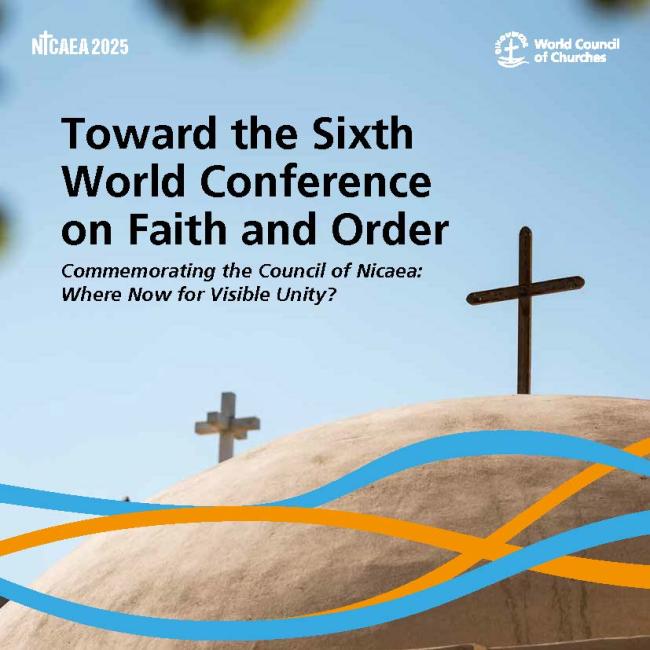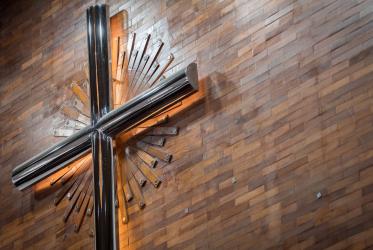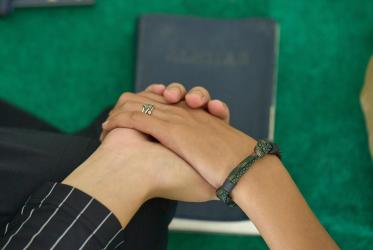Displaying 1 - 20 of 179
Toward the Sixth World Conference on Faith and Order
Commemorating the Council of Nicaea: Where Now for Visible Unity?
24 February 2024
Thirsting for peace: Gaza's water woes in the midst of war
31 January 2024
Churches in Africa agree on guidelines for disability inclusion
19 December 2023
WCC webinar explores decolonizing beauty
11 December 2023
Young Black Europeans: “common witness has an open ear”
30 November 2023










